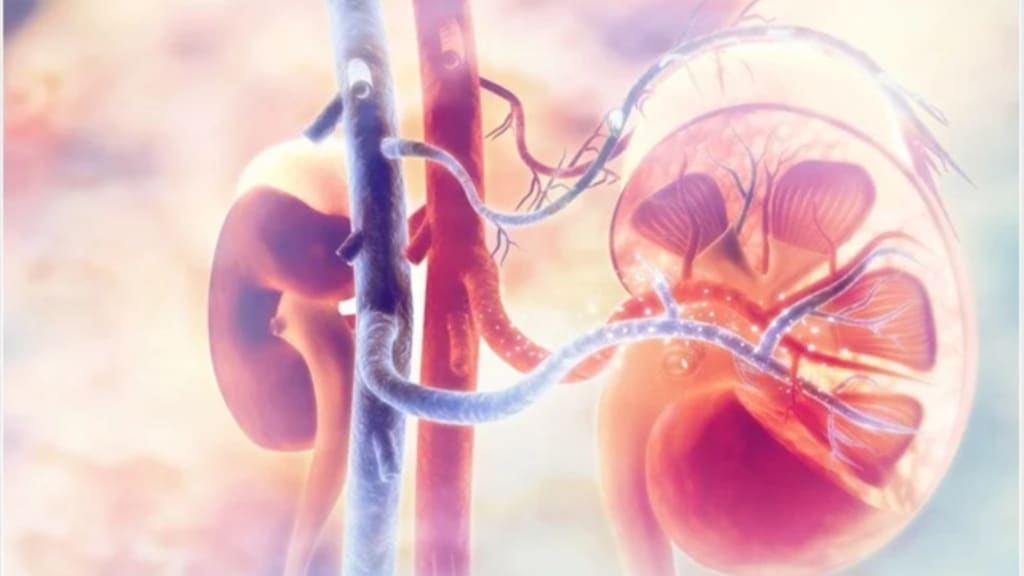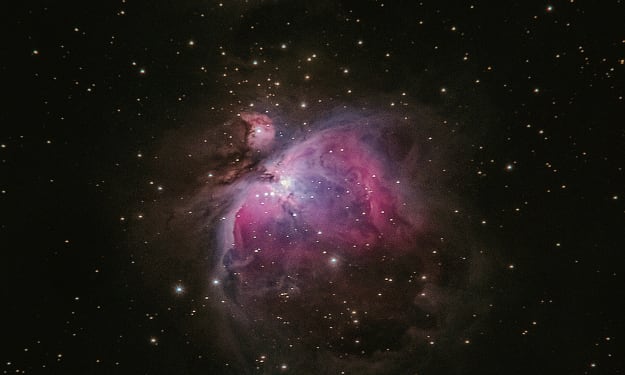Content warning
This story may contain sensitive material or discuss topics that some readers may find distressing. Reader discretion is advised. The views and opinions expressed in this story are those of the author and do not necessarily reflect the official policy or position of Vocal.

Genetic disorders are the ones that an individual suffers from due to receiving improper genes from one of the genetic parents. An affected individual doesn’t need to suffer from a disease or any disorder, but it does enhance the chances of getting affected by a medical disorder.
Cystinosis is a rare genetic disorder characterised by the accumulation of the amino acid cystine within cells, leading to cystine crystal formation and damage in various organs, especially the kidneys and eyes. It can cause kidney dysfunction, vision problems, and other complications, often requiring lifelong treatment and management.
In case of symptoms such as excessive thirst, feeling of immediate urge to urinate frequently, vomiting, dehydration, and fever, one must immediately consult a doctor to understand the root cause of repetitive medical problems. The medical disorder works like a slow poison that gradually damages the functioning of different organs, and if not treated at the right time, the symptoms may also turn severe.
Causes of Cystinosis
The primary cause of the genetic disease is a mutation in the CTNS gene. The primary role of the gene is to direct the protein, known as Cystinosis, in the right direction. The gene is responsible for transporting amino acids out of the lysosomes. Lysosomes are compartments in the cells that break down nutrients and minerals.
Due to improper functioning of the cells due to gene mutation, the cysteine builds up in the cells and cannot get out from the lysosomes. The build-up of the acid leads to its crystallisation and causes damage to other body organs.
The disorder is an inherited one in an autosomal recessive pattern. In layman’s language, an individual needs a pair of mutated genes from both biological parents to get affected by the disorder. If a child receives the pair of mutated genes and develops the disease symptoms, treatment should begin at the right time to avoid worsening symptoms.
Symptoms of Cystinosis
The severity of cystitis symptoms depends upon the patient’s present condition. Mentioned below are a few signs of the disease:
Excessive Thirst– One of the identifiable and primary symptoms of the disease is excessive thirst. The affected individual feels thirsty frequently. The cysteine crystals also accumulate in the corner of the eyes, making it difficult for the patient to have a clear vision. The condition is further accompanied by pain, sensitivity to light, and blurry vision. All these symptoms are observed due to cysteine damaging the kidneys.
Electrolyte Imbalances– It is also one of the damaging symptoms of the disease. It happens due to improper absorption of liquids and nutrients. The issue can be identified by health symptoms such as overheating, fatigue, muscle cramps, and weakness. Hence, in case of such health issues, contact a doctor for proper knowledge and guidance about the treatment options to cure the problem.
Failure to Thrive- Infants with cystinosis may have difficulty gaining weight and growing normally.
Kidney Problems- Cystinosis primarily affects the kidneys, leading to renal Fanconi syndrome. This can result in excessive thirst and urination, electrolyte imbalances, and poor growth.
Photophobia- Sensitivity to light, especially bright sunlight, is common in individuals with cystinosis.
Vomiting– An individual vomiting after frequent intervals may also have the symptoms of the genetic disorder. The disorder also damages the gastrointestinal tract, leading to vomiting, indigestion, lower appetite, and other similar problems. If the situation is not treated promptly, one may face liver, bone, lung, and nervous system issues!
Dehydration– One of the significant symptoms of the genetic disorder is dehydration. The affected individual may be irritated with symptoms such as excessive thirst and frequent urination, making maintaining a proper balance between health situations challenging. In case of such medical issues, one may face dehydration, tiredness, and low energy. Timely treatment helps lower the problem and make one feel stable.
Treatment Options for Cystinosis
Medication– It is one of the prime options for cystinosis treatment. Cysteamine is a drug helpful to lower the accumulated cysteine level in the body from the cells. Hence, the individual can recover in a short period. The medication works as a cystine-depleting agent to allow one to recover from the disorder.
Cysteamine Bitartrate, A medication used to treat cystinosis, a rare genetic disorderCysteamine Bitartrate, A medication used to treat cystinosis, a rare genetic disorder
When used at the right time, the medication also helps lower kidney damage chances. It is also helpful in children’s growth from suffering from the issue. Drugs to maintain electrolyte balance are also suggested by doctors for easy recovery.
Stay Hydrated– Another important guidance rule to be followed by a patient is to stay hydrated. It helps to prevent dehydration and allows one to avoid muscle cramps weakness and also to maintain the electrolyte balance of the body.
Kidney Transplant- In cases where kidney function becomes severely impaired, a kidney transplant may be necessary. This involves replacing the damaged kidneys with a healthy donor kidney.
Management of Complications- Depending on the progression of the disease, individuals with cystinosis may require additional treatments to manage complications such as hypothyroidism, photophobia, muscle weakness, and swallowing difficulties.
Eye Care- Ophthalmologic care is crucial for managing the eye-related symptoms of cystinosis, including corneal cystine crystal accumulation. Lubricating eye drops and surgical interventions may be necessary in severe cases.
About the Creator
Enjoyed the story? Support the Creator.
Subscribe for free to receive all their stories in your feed. You could also pledge your support or give them a one-off tip, letting them know you appreciate their work.





Comments
There are no comments for this story
Be the first to respond and start the conversation.